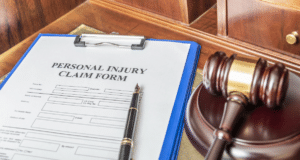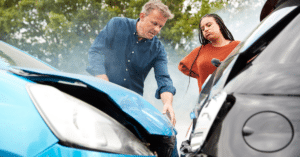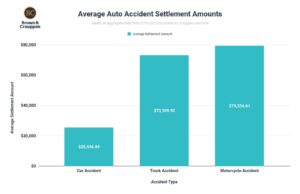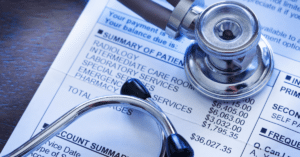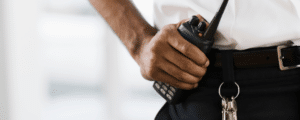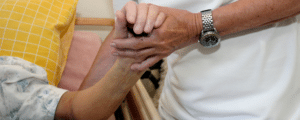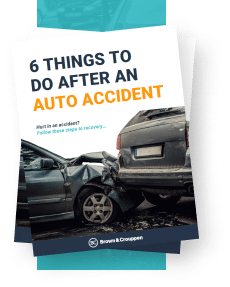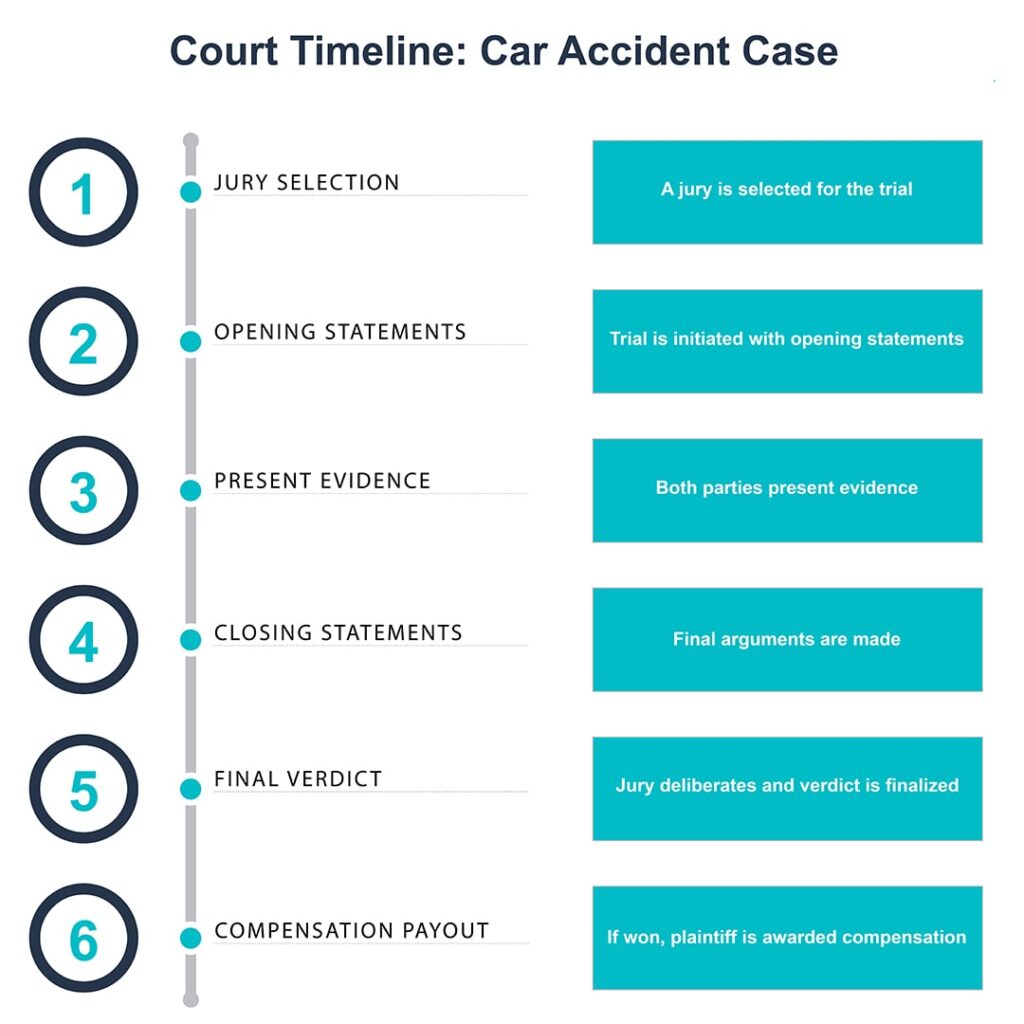
Step 1: Jury Selection
The first step in a trial is selecting the jurors. Attorneys provide a brief overview of the case to the jury pool and ask questions to ensure fairness and impartiality. Both sides request the removal of specific jurors until a final group is sworn in to hear the case.
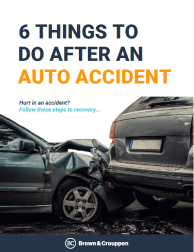

Use our legal checklist to learn what to do after an accident and understand key legal considerations for recovering financial compensation.
Step 2: Opening Statement
Once the jury is chosen, the plaintiff’s attorney initiates the trial with an opening statement that outlines their claims and supporting evidence. The defendant’s attorney may or may not provide an opening statement, but if they choose to, it’s usually directly after the plaintiff’s opening statement or after the plaintiff finishes their case presentation. Opening statements do not count as evidence, rather they simply explain what each side is claiming and what they intend to prove. Actual proof is presented through evidence.
Step 3: Present Evidence
Evidence is anything presented to prove or disprove a claim about the facts of the case. Evidence that is presented in a car accident case may include any of the following:
- Documents (medical records, police reports, drawings of the accident, etc.)
- Photographs (of the plaintiff’s injuries, of each driver’s vehicle, of the accident site, etc.)
- Videos (footage from public street cameras or storefronts, dash cam footage, etc. )
- Statements (in the form of text messages, e-mails, social media posts, etc.)
- Deposition testimony (sworn testimony taken in front of a court reporter)
Attorneys anticipate going to trial from the start, emphasizing the need to photograph and document everything relating to a claim. All parties involved have a duty to preserve any potential evidence. However, it should be noted that not all evidence is presented at trial, as attorneys can object to certain pieces of evidence and prevent the jury from considering them.
Step 4: Closing Statements
After the evidence is presented, both sides make their arguments to the jury, explaining why they should win. If there are conflicting testimonies, each side explains why their witnesses should be trusted over the other side’s.
Step 5: Jury Deliberation & Final Verdict
After closing statements, the judge will provide jury instructions, explaining the legal considerations and decision-making process for reaching a verdict. The jurors will receive written instructions and a verdict form. Unlike criminal cases where the verdict is simply “guilty” or “not guilty,” the verdict form in a car accident case requires jurors to determine if they find in favor of the plaintiff or defendant, what percentage of fault they attribute to each party, and how much money should be awarded to the plaintiff
Step 6: Compensation Payout
If the jury rules in favor of the plaintiff, the defendant will be ordered by the court to pay the awarded amount. The awarded amount must first satisfy any liens, outstanding bills, and case expenses. Once all of that is paid, the plaintiff will receive a final payment. Receiving the award means that the lawsuit is over.
However, it’s important to note that both parties have the option to file an appeal after the trial if they believe there was an error and they want a higher court to reconsider the decision. If there is a basis for an appeal, your attorney will explain the process to you.
What Causes a Car Accident Case to Go to Court?
Trial is only necessary when the parties cannot come to an agreement. This is because trials are time-consuming, expensive, and mentally exhausting for all parties involved. Accordingly, the desire to avoid going to trial motivates both parties to reach a private settlement agreement outside of the courtroom. However, situations where a car accident case may need to go to trial include:
- The at-fault driver’s insurance company will not offer a fair settlement
- Despite the attorney’s negotiations with the at-fault driver’s insurance company, they’re being stubborn and won’t pay enough money for the injured person’s damages
- The parties can’t agree on who caused the accident
What Can I Do to Prepare for Court?
The more evidence you have to make your claim, the more likely you are to convince a jury to find in your favor. You can assist your attorney with evidence gathering by:
- Photographing your injuries
- Photographing the vehicles involved in the accident
- Updating your attorney on your medical treatment plan (which providers you’re treating by, how often you are being treated, etc.) so they can order your medical records
- Preserving electronic evidence in your possession such as text messages, e-mails, social media posts, etc.
- Preserving documents related to your injuries (medical records, prescription receipts, etc.)
- Having open and honest conversations with your attorney if you have any concerns about the evidence
How Will an Attorney Help Prepare My Case for Court?
If your case is going to proceed to trial, your attorney will need to meet with you frequently as the trial date approaches.
- Trial preparation with your attorney may include:
- Re-reviewing evidence together
- Role-playing which questions to expect on the witness stand
- Familiarizing yourself with the layout of the courtroom
- Refreshing your memory by reviewing previous statements you gave such as deposition testimony, recorded statements, or a statement to the police at the scene of the accident
- Discussing courtroom demeanor and what to wear for trial
- Discussing how to handle settlement discussions and what kind of verdict the attorney should be aiming for
Get Help From a Car Accident Lawyer at Brown & Crouppen Law Firm
The attorneys at Brown & Crouppen are fierce advocates for crash victims. With over 44 years of experience representing car accident victims, Brown & Crouppen has the knowledge and expertise to win cases. While we strive to reach a fair settlement with the other driver’s insurance company, we are ready to take on a trial if necessary. Time and time again, we’ve proven our ability to take on powerful insurance companies and secure top results for our clients. Put yourself in the best position to win your car accident injury claim and learn about the benefits of working with our respected legal team.
Getting started with your case is easy. Call (888) 802-8156 or request a free case evaluation online. And remember, there are no upfront costs or legal fees – we only get paid if you win. The attorneys at Brown & Crouppen Law Firm have won over $1 billion in compensation for our clients, including car accident verdicts and settlements in St. Louis, Kansas City, and surrounding areas in the Midwest.

